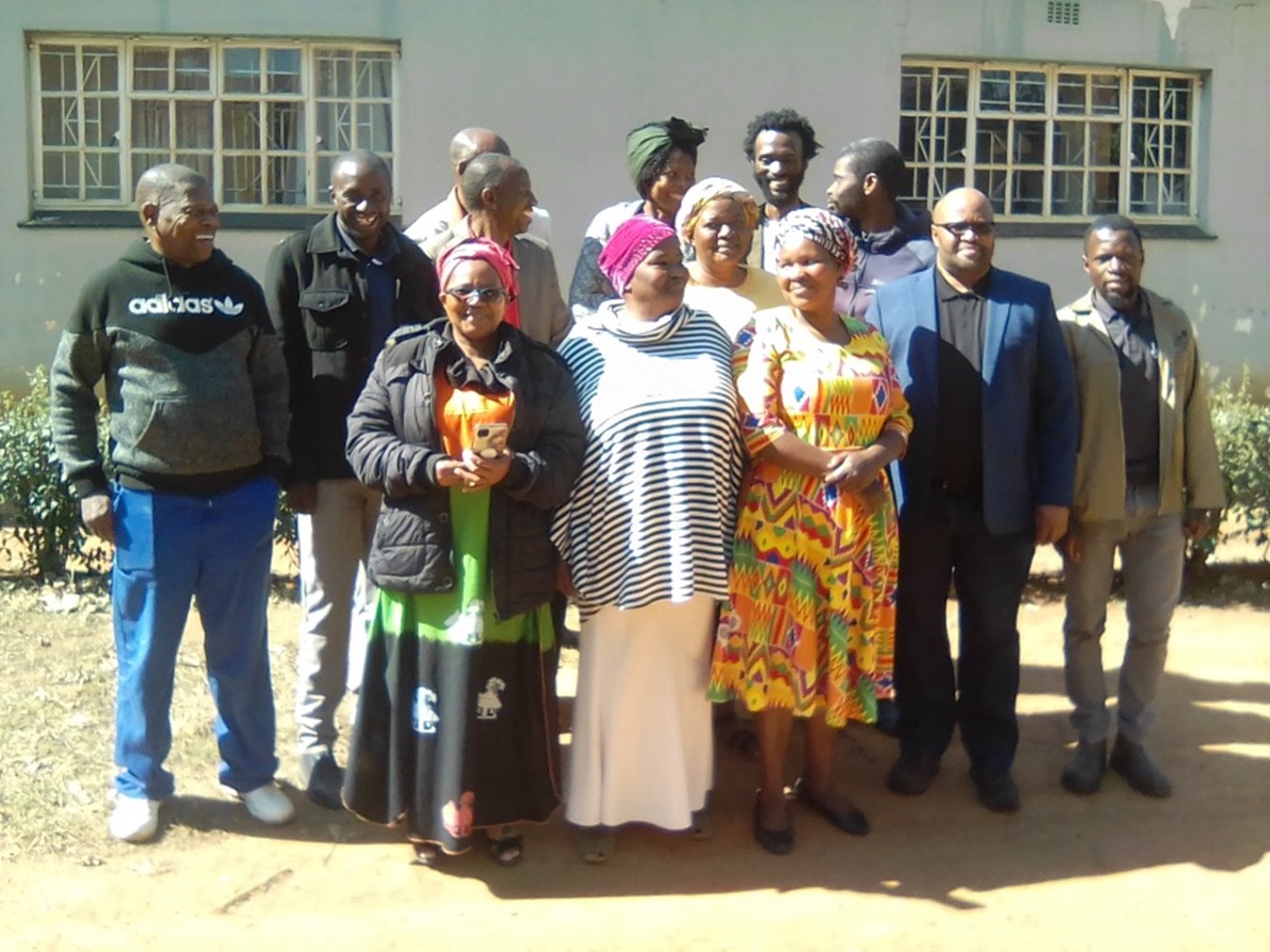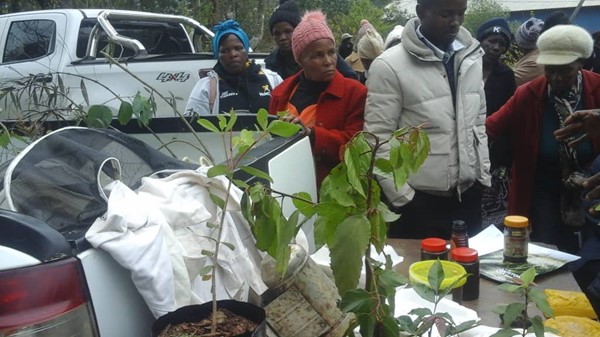Eswatini's Apiculture Farmers Champion Indigenous Trees for Sustainable Bee Production

By Ncamsile Matsebula
Eswatini’s apiculture sector is rewriting its success story, as beekeepers increasingly adopt indigenous trees in their production processes. These trees not only elevate the quality of honey production but are also resilient against drought, especially critical in our changing climate. They benefit the ecosystem by being water-efficient and producing remarkably organic honey with medicinal qualities. Beyond honey, they aid in food production for both humans and animals. These were the resounding insights of Mr. Phefeni Vilakati, Chairman of the Manzini Region Apiculture Committee, during a meeting on August 8th.
This monumental meeting was held at the Rural Development Area Office in Ludzeludze. CCARDESA Executive Director, Professor Cliff Sibusiso Dlamini, graced the meeting.
Emphasizing the affordability and accessibility of indigenous trees like Umcozi, umvangati, umvongotsi, and umnumbela, Mr Vilakati passionately advocated for their role in safeguarding the environment and promoting sustainable apiculture. Furthermore, these trees negate the need for more expensive, exotic plants.
A pivotal government assembly in May spotlighted grassroots mobilization to advance the beekeeping industry. The overarching aim: fostering poverty alleviation and job creation across the beekeeping value chain, encompassing honey production, equipment crafting, protective clothing manufacturing, and cosmetics derived from beeswax.

Members of the public at the apiculture show at Ngwemphisi RDA visiting the apiculture desk.
The Manzini region's proactive approach to apiculture is evident in its diligent data collection on farmer demographics and intensive outreach campaigns. In July, the region showcased the potential of apiculture at agricultural shows in Ngwempisi RDA and Ludzeludze, presenting various products, including honey, equipment, and native trees.
Capacity-building is a focal point for the Manzini committee, which is eyeing comprehensive training programs for farmers, committee members, and agricultural extension officers. One ambitious plan is to establish a one-stop hub for beekeeping equipment, apparel, and value-added products. Incorporating beekeeping as an integral part of environmental conservation and sustainable agriculture, the committee has championed the interplanting of crops beneficial to honey bees, such as sesame, cowpeas, and maize. They are also advocating for research-backed, quality apicultural products that are traceable, ensuring product integrity.

The chairman of the Manzini regional apiculture Phefeni Vilakati at Ngwemphisi shows exhibiting honey products.
Professor Cliff Dlamini lauded the committee's efforts, applauding the Committee’s initiative to drive the industry autonomously, rather than solely relying on government support. Highlighting a recent meeting in South Africa, he revealed that Eswatini's project proposal was among the eight successful submissions from SADC member states, aligning seamlessly with the UN's 2030 agenda that addresses poverty alleviation and climate change.
Through these holistic initiatives, Eswatini's apiculture farmers are not just producing honey; they are crafting a sustainable future.
The author is the Vice-Chairperson of the Manzini Apiculture Committee.

























































